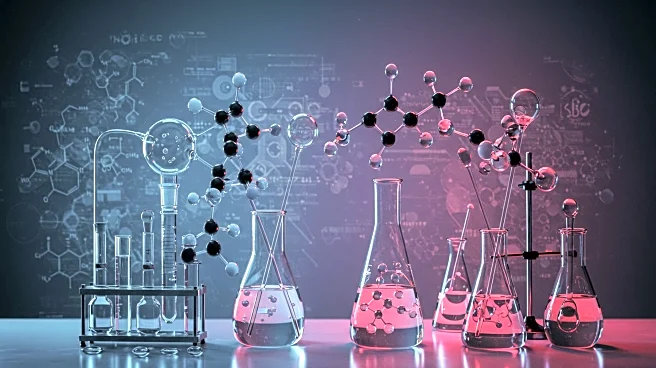What's Happening?
Researchers have potentially recreated the first molecules that formed in the universe, challenging existing theories about molecular formation post-Big Bang. The study suggests that the rate of molecular reactions did not slow as the universe cooled, contrary to previous beliefs. This discovery could alter the understanding of star and planet formation, as well as the universe's expansion. The research involved recreating helium hydride ions, believed to be the universe's oldest molecules, and testing their reactions in controlled environments.
Why It's Important?
This breakthrough could significantly impact the scientific community's understanding of the universe's early development. If the findings are confirmed, they may lead to a reevaluation of how stars and planets formed, influencing both theoretical and observational astrophysics. The research could also provide insights into the universe's expansion, potentially affecting future studies in cosmology and the development of new technologies for space exploration.
What's Next?
Further research is needed to validate these findings and explore their implications fully. Scientists may conduct additional experiments to confirm the consistency of molecular reactions at varying temperatures. This could lead to new models of the early universe and influence future space missions and telescopic observations aimed at understanding cosmic origins.








